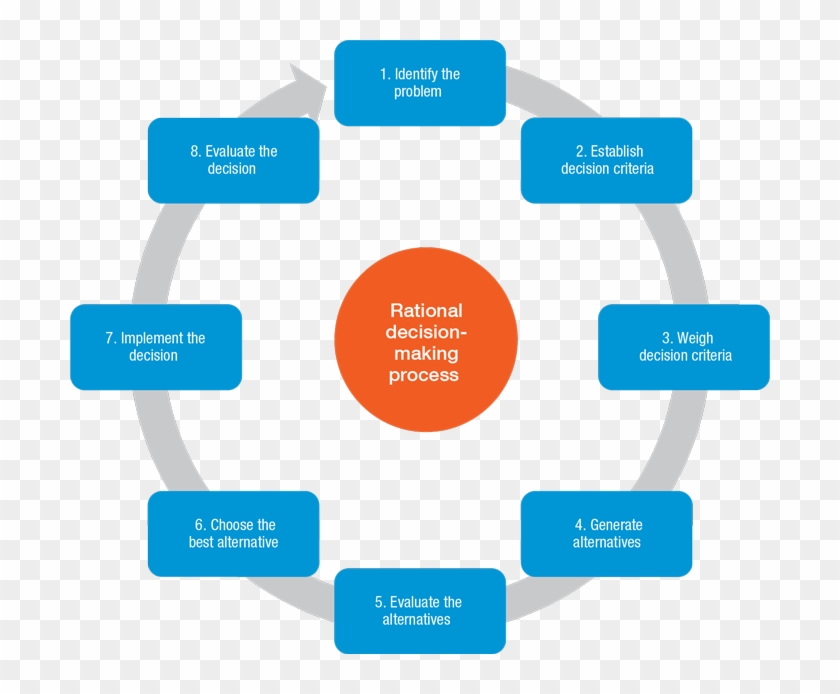Founder Digitalu | Posted on |
“Actually” Impress Your Boss
0
1280 Views
They say to show up early, stay late, don't gossip, dress well and walk around the office fast, so you look busy. Really? Sorry, that’s just not going to work. What will impress your boss is results! The boss wants quality work that gets done ahead of schedule. Are you “Smart?” Smart is not about I.Q. but about whether you make smart decisions.
How Do You Make Decisions?
Your decision-making patterns are determined by your early 20’s. Your cognitive strengths and weaknesses are derived from how much time you routinely spend in the each of the six processes involved in decision-making. Your successes in life are determined by how effectively you leverage the resulting strengths. If your results are not what you would like, it is essential to bring awareness to your decision-making patterns to begin to make a shift.
Have you ever wondered why some people go from one success to another, while others struggle to make it? To a large extent, how they make decisions can explain the difference. Understanding your approach is your first crucial step to gaining better results.

The 6 Processes In Making Decisions
Your natural strengths and habits will favor some of these over the others. It is critical to understand that ALL of these are important to varying degrees depending on your goals.
1. Exploring is a way to gather information with a broad scope: looking for alternatives, different options or brainstorming. Spending a lot of time in this process will lend to creative solutions, yet may also make you appear distracted and not focused.
2. Investigating is the process of gathering in-depth information on a narrower scope. Gathering and analyzing detailed information for an initiative to be well informed. People who spend a lot of time in this process will be well prepared, analytical and will take less risk when proceeding to action.
3. Evaluating is the process of weighing pros and cons, prioritizing initiatives, information or actions. This is a deliberative process of creating clarity. People who spend a lot of time here may be able to create clarity for themselves and others, yet see things as black and white, potentially be viewed as judgmental.
4. Determining is the process of deciding how firmly you will stick to an initiative when faced with obstacles. Will you stand firm or push back if others apply pressure to you? Or will you cave? People who spend a lot of time here are known to have grit, yet others may view them as stubborn.
5. Anticipating is the process of generating vision, forecasting consequences of actions down the road and staging activities to reach an end goal. People who spend a lot of time here are great in forward planning and spotting trends, yet may be anxious, always living in the future and not in the present.
6. Timing is the process of being able to accelerate or decelerate actions based on the needs of an initiative. People who spend a lot of time here are known to seize opportunities, yet may expect others to match their adjustment in pace and become impatient with others who cannot do so.
Also Read : Reach Higher Levels Of Success By Sharpening Your Decision-Making
Spending a lot of time in any process means greater than 20% of your time, which will become known as your specialty. Spending less than 10% of your time in any process equates to a potential blind spot. However, your strength will also come with a correlating weakness to be conscious of. Are you known for your research, new ideas,
creating systems, persistence, vision or seizing opportunities?
How can you use this information? Here are some suggestions for you to
Take Your Work To The Next Level
Where do we go from here? Let’s take a look at some immediately applicable tools to re-align your work and working teams as they stand today.
• When approaching your tasks and responsibilities, spend time in each of the 6 cognitive processes.
Many times when we make an error or don’t succeed, it is because we missed considering one of the 6 cognitive processes discussed above. This is a missed detail, overlooked viable option, lack of persistence, missing plan, missing process or we didn’t adjust pace for the deadline. Bringing one’s attention to each of the six processes in decision-making will ensure a thorough thought process.
• Structure team meetings ensuring an equal amount of time in each of the six cognitive processes.
How many of us complain about too many meetings that go nowhere? If we cover each cognitive process with equal time, we are more likely able to progress from preliminary consideration to execution. Pass the lead of each of the 6 processes to those having strengths in the area.
• Assess project needs and compare these needs to the cognitive strengths of the team/individual. At the
outset of a project, one can accurately predict the likelihood of success or failure. You can either accept or decline the project based on the cognitive profile of the team. If there is a deficiency in the cognitive patterns required on a project, a leader can supplement the team with consultants, or add other required resources.
• Reassign responsibilities within a team based on the cognitive strengths of the individuals.
Structure the team to pass off parts of a project to each other based on cognitive strengths. When work roles and responsibilities utilize an employee’s cognitive strengths, workplace stress is reduced, work quality increases and turnover is reduced.
Incorporating one or all of the above suggestions will lead a team to success. Not by the games of showing up on time, staying late and walking fast in the hallway as suggested in many business periodicals, but by strategically crafting the decision-making processes and streamlined productivity.
Also Read : Team Collaboration Does Not Mean Team Building
